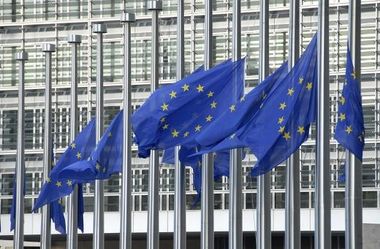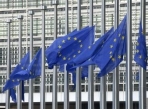- Serbia
Get to know Serbia
- Citizens
Culture and science
Health services
Pension and disability insurance
- Business
Employment
Economy
- Media
- Government
- Contact
Keep in touch
Contact form
Back
Keepin touch
Whether you have a question, comment, suggestion or any problem in the purview of the government, send us your message and we will try to respond as soon as possible. If your problem is not in our purview, we will forward your message to the relevant institution.
Q:
A:
European Commission to set aside additional €65m for aid to Serbia, Bosnia-Herzegovina
Belgrade/Brussels,
28 May 2014
The European Commission has decided to allocate an additional €65 million intended for the clean-up of consequences of the severe flooding that hit Serbia and Bosnia-Herzegovina, in addition to the immediate assistance provided so far, and this sum will be available to both countries at the end of June.
A statement by the European Commission reads that of this amount, €3 million of humanitarian aid is intended for the most vulnerable populations in both countries for food, health and the implementation of health measures, first aid and shelter.
The priority is the provision of drinking water, basic first aid resources such as blankets, mattresses, beds, sheets and supplies and materials related to the drying equipment for the repair of damaged houses.
The remaining €62 million is allocated for the purpose of short-term and medium-term reconstruction and rehabilitation of the consequences of floods.
These funds are diverted from previous programmes under the Instrument for Pre-Accession Assistance (IPA) and among other things, this financial assistance is intended for the reconstruction of public infrastructure, such as schools and social welfare services, and the provision of basic equipment for companies and farms for restart of business operations.
The EU is interested in continuing with the provision of middle and long term support through a new IPA programme from 2014 to 2020.
The exact amount of the assistance will be determined on the basis of a comprehensive assessment of needs, which should be completed in the coming weeks, so the funds will be available to both countries in the summer.
In addition to humanitarian aid in the amount of €3 million, there is non-material assistance offered by 22 member states of the EU Civil Protection Mechanism.
In both countries more than 660 people are deployed who have brought motorboats, helicopters, water pumps and humanitarian aid kits.
The European Commission covers part of the aid transportation costs and provides satellite images of the affected areas, it is added in the statement.
The priority is the provision of drinking water, basic first aid resources such as blankets, mattresses, beds, sheets and supplies and materials related to the drying equipment for the repair of damaged houses.
The remaining €62 million is allocated for the purpose of short-term and medium-term reconstruction and rehabilitation of the consequences of floods.
These funds are diverted from previous programmes under the Instrument for Pre-Accession Assistance (IPA) and among other things, this financial assistance is intended for the reconstruction of public infrastructure, such as schools and social welfare services, and the provision of basic equipment for companies and farms for restart of business operations.
The EU is interested in continuing with the provision of middle and long term support through a new IPA programme from 2014 to 2020.
The exact amount of the assistance will be determined on the basis of a comprehensive assessment of needs, which should be completed in the coming weeks, so the funds will be available to both countries in the summer.
In addition to humanitarian aid in the amount of €3 million, there is non-material assistance offered by 22 member states of the EU Civil Protection Mechanism.
In both countries more than 660 people are deployed who have brought motorboats, helicopters, water pumps and humanitarian aid kits.
The European Commission covers part of the aid transportation costs and provides satellite images of the affected areas, it is added in the statement.
-
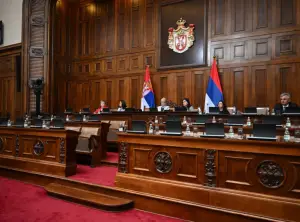 Belgrade, 7 November 2025
Belgrade, 7 November 2025Parliament adopts multiple laws
-
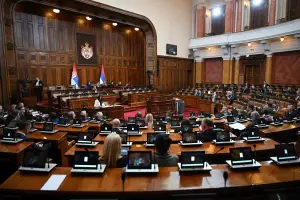 Belgrade, 22 October 2025
Belgrade, 22 October 2025Parliament adopts several laws, ratifies multiple international agreements
-
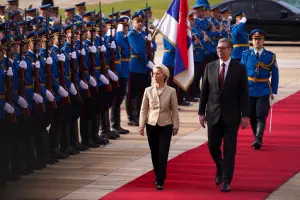 Belgrade, 15 October 2025
Belgrade, 15 October 2025Vučić welcomes Ursula von der Leyen in front of Palace of Serbia
-
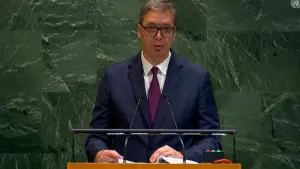 Belgrade/New York, 24 September 2025
Belgrade/New York, 24 September 2025Respect for UN Charter obligation of all countries
-
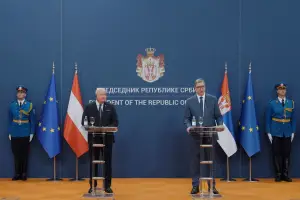 Belgrade, 13 August 2025
Belgrade, 13 August 2025High level of understanding, agreement between Serbia, Austria
-
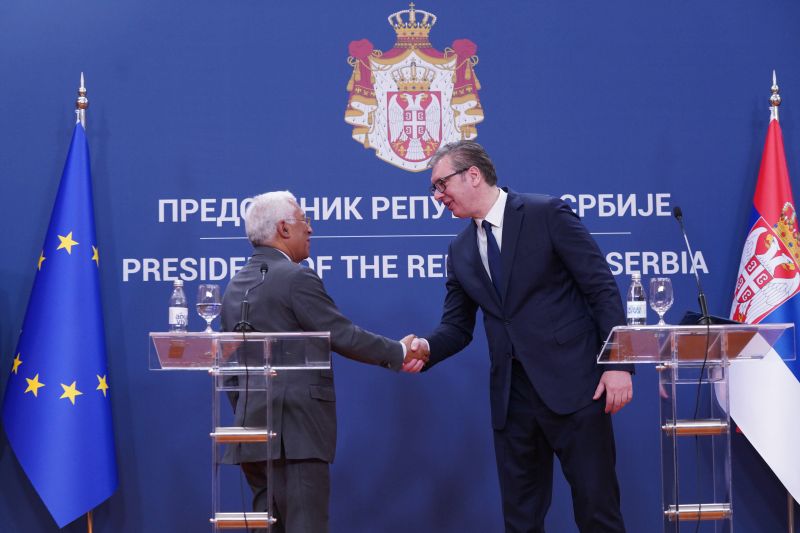 Belgrade, 13 May 2025
Belgrade, 13 May 2025Serbia's sincere, firm commitment to European path, reforms and dialogue
-
 Belgrade, 13 May 2025
Belgrade, 13 May 2025Vučić welcomes European Council President in front of Palace of Serbia
-
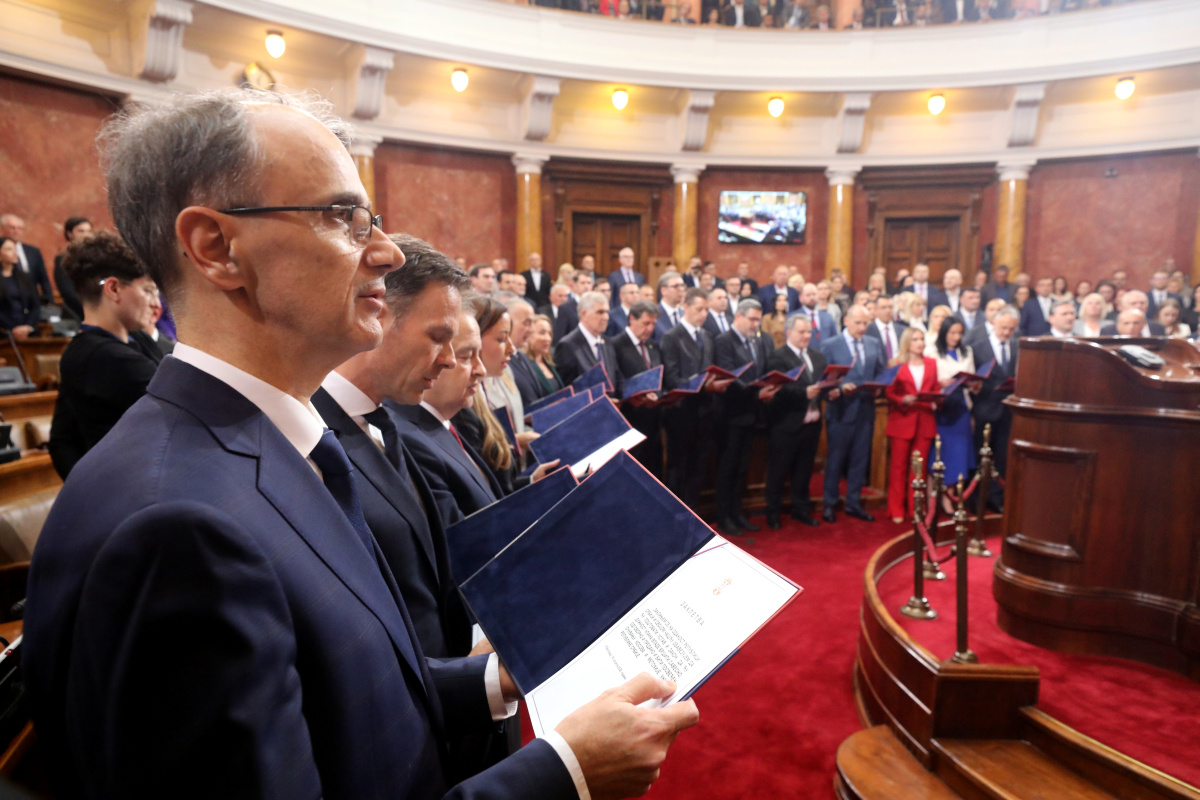 Belgrade, 16 April 2025
Belgrade, 16 April 2025New Serbian government voted in
-
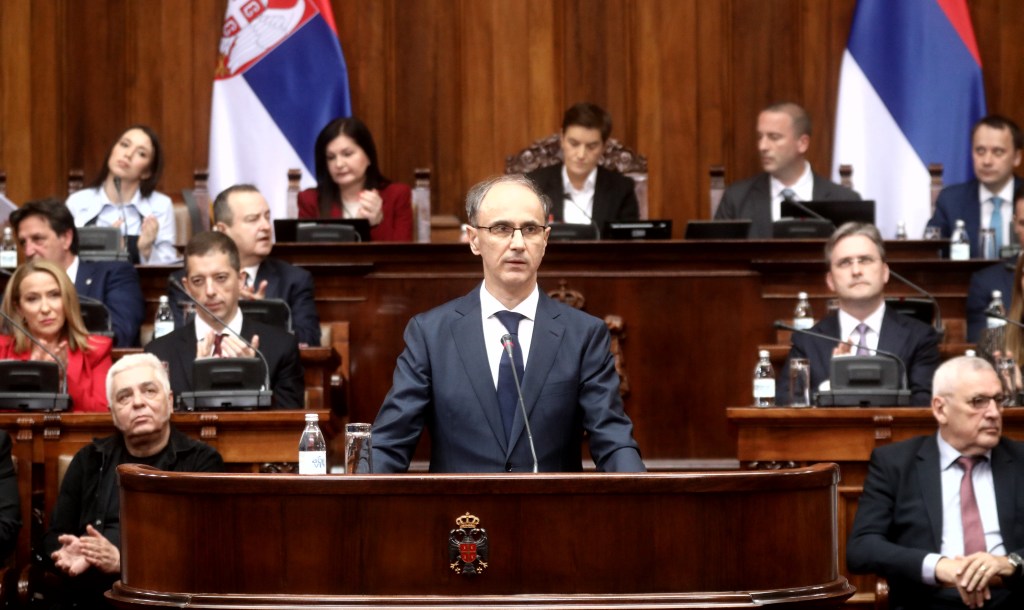 Belgrade, 15 April 2025
Belgrade, 15 April 2025Building unity through dialogue, tolerance, respect for value system
-
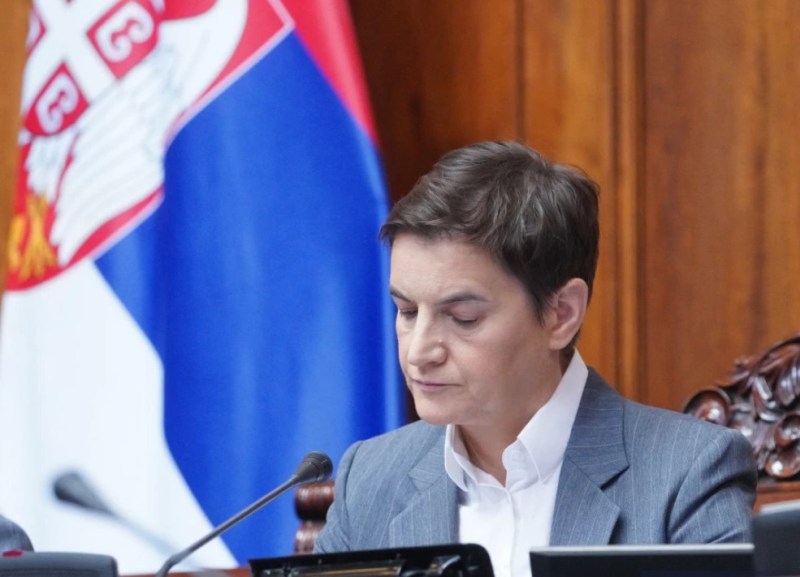 Belgrade, 14 April 2025
Belgrade, 14 April 2025National Assembly speaker convenes session on government election

